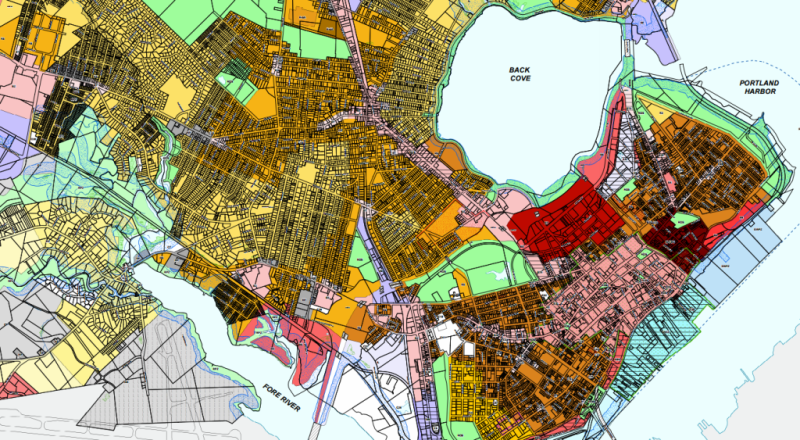
Zoning Regulations Are Driving Up Portland Rents
Renting in Portland remains unaffordable for many of its residents. Instead of saving up money for new clothes, a new car, or a much deserved vacation, many Portlanders are trapped in situations where rent takes up the lion’s share of their paycheck, leaving them little to nothing in their pocket. But that’s nothing new for the Forest City. Former mayor Michael Brennan introduced an inclusionary zoning ordinance before he was voted out of office, and current Mayor Ethan Strimling has formed a committee to address the affordability gap in Portland’s rental housing market.
The “solutions” suggested or implemented so far are bound to fail. Inclusionary zoning is a policy that requires developers to include a number of low income housing units in any rental building. While this obviously discourages development by increasing their costs and diminishing their returns, it also fails to make a significant dent in Portland’s sky high rental market. Such piecemeal attempts at solving the problem give the illusion that the city is addressing the problem without doing much of anything. Other proposed solutions, such as a temporary freeze on rents, is an even worse idea. What Portland desperately needs is a comprehensive, long-term solution to the rental housing crunch.
A report from the Mercatus Center may have an answer to the city’s woes. According to researchers with Mercatus, zoning regulations lead to higher costs, with low-income residents absorbing the brunt of the costs. Policies such as minimum lot sizes, parking requirements, and inclusionary zoning can have massive effects on a city’s housing stock. According to the report, onerous zoning often causes inefficient land use, limited development, and “regulatory taxes” of over 10% in major cities.
Take a look at this map of zoning in Portland and tell me if you think it’s encouraging or discouraging development.

That is just the tip of the maze of land-use regulations that developers need to navigate in order to begin a project in Portland. Developers need to comply with height restrictions, inclusionary zoning, minimum lot sizes, limits on the number of units, and a vast array of inane and obscure rules.
And if they slip up on just one, they can be guaranteed that an anti-development activist group will sue them in court and do everything they can do destroy the project. Zoning compliance can add an obscene amount of costs to a new project, and a successful lawsuit can completely sink the development. A culture of anti-development activism has taken hold in parts of the city, and any major project should expect a group of “concerned citizens” to bully and harass them from the outset. These small groups are masters of getting press coverage of their pet causes, and use any tactic they can think of to delay, limit, or fully stop construction that will lower their property values. Many developers will avoid Portland and its associated costs and risks altogether and build projects in friendlier municipalities.
Portland residents desperately need more rental units to drive down prices, and developers want to build them–it’s a win/win. Portland needs to stop standing between renters and housing suppliers and let the market work.
If Mayor Strimling and the city council are truly interested in addressing Portland’s affordability gap, then they need to do a cost-benefit analysis of the city’s zoning code. Instead of discouraging development with an unwieldly zoning environment and enabling anti-development protesters, Strimling and Co. need to streamline the city’s regulatory structure, limit frivolous lawsuits, and give developers more freedom to operate.
If Portland’s government could just get out of the way, developers would be able to provide more housing for the low-income families who truly need it.
